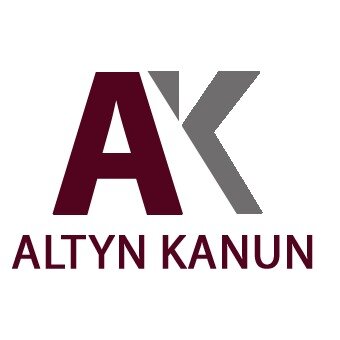Best Transportation Lawyers in Ashgabat
Share your needs with us, get contacted by law firms.
Free. Takes 2 min.
List of the best lawyers in Ashgabat, Turkmenistan
About Transportation Law in Ashgabat, Turkmenistan
Transportation in Ashgabat, the capital city of Turkmenistan, is a critical aspect of daily life, including the movement of goods and passengers. Ashgabat is known for its well-maintained highways and distinctive public transit services. Transportation law encompasses the regulations and standards governing this sector, involving everything from public transportation and personal vehicle use to logistics and freight transport. Given the nation's strategic location and focus on infrastructure development, understanding local transportation laws is essential for residents, businesses, and visitors alike.
Why You May Need a Lawyer
There are several scenarios where legal advice in the field of transportation is necessary:
- If you are involved in or a victim of a traffic accident, navigating the legal aftermath can be complex.
- For businesses engaging in logistics or freight transport, compliance with transportation regulations and resolving disputes with partners or authorities may require legal assistance.
- Individuals or companies planning to import or export goods need to understand and adhere to transportation and customs regulations.
- Those looking to challenge penalties or fines related to transportation infractions might need legal representation.
- Consultation during contract drafting or negotiation for transportation projects or services is beneficial to ensure all legal bases are covered.
Local Laws Overview
Transportation in Ashgabat is governed by various laws and regulations, focusing on ensuring safe, efficient, and environmentally friendly transit. Key aspects include:
- Strict adherence to traffic rules and regulations, with penalties for violations like speeding, improper vehicle maintenance, and operating a vehicle without a valid license.
- Freight transport is subject to regulations regarding vehicle weight limits, cargo safety standards, and route restrictions.
- Public transportation is regulated to ensure passenger safety, availability, and service quality.
- Environmental standards focus on reducing vehicle emissions and encouraging the use of cleaner fuel options.
Frequently Asked Questions
What are the requirements for obtaining a driver's license in Ashgabat?
Residents must pass theoretical and practical driving tests, provide medical certifications, and complete a driving course from a recognized institution.
Can foreign nationals drive in Ashgabat using their home country’s driving license?
Foreign nationals can drive temporarily using an international driving permit, but longer stays may require obtaining a Turkmenistan driver's license.
What should I do if I am involved in a traffic accident?
Immediately report the accident to the traffic police, secure the scene to prevent further accidents, and exchange insurance details with the other party involved.
What are the common penalties for violating traffic laws?
Penalties can include fines, points on the driver’s license, increased insurance premiums, and in severe cases, suspension of driving privileges.
How do environmental regulations affect transportation in the city?
Vehicles are subject to emissions testing, and there may be incentives or requirements to use vehicles with lower environmental impacts.
What are the key considerations for transporting freight in and out of Ashgabat?
Ensure compliance with weight restrictions, route regulations, cargo safety standards, and customs procedures for international freight.
Are there any restrictions on public transportation usage in Ashgabat?
Public transport operates under governmental regulations ensuring safety and accessibility, with certain areas having restricted vehicle access to prioritize public transit.
Is it possible to contest a transportation fine or penalty?
Yes, you can contest fines through the appropriate legal channels, usually involving an appeal with the relevant traffic authority.
What legal considerations are involved in setting up a transportation business?
Significant considerations include acquiring the necessary permits, understanding tax obligations, ensuring employee compliance with safety standards, and adhering to local transportation laws.
How does public transport regulation impact daily travel in Ashgabat?
Regulation ensures that public transport is reliable, safe, and efficient, impacting route planning, fare structures, and service frequency.
Additional Resources
Those seeking further information can consult the following resources:
- Ministry of Motor Transport of Turkmenistan: For regulations, licensing, and compliance details.
- State Customs Service: To understand requirements for freight and logistics involving international borders.
- Local attorney directories: To find legal professionals specializing in transportation law.
Next Steps
If you need legal assistance with transportation issues in Ashgabat, consider taking the following steps:
- Identify and document your specific needs or issues related to transportation.
- Search for and consult with a legal professional who specializes in transportation law.
- Prepare any necessary documentation or evidence to expedite the legal consultation process.
- Discuss potential outcomes and strategies with your lawyer for addressing your transportation-related legal matter.
Lawzana helps you find the best lawyers and law firms in Ashgabat through a curated and pre-screened list of qualified legal professionals. Our platform offers rankings and detailed profiles of attorneys and law firms, allowing you to compare based on practice areas, including Transportation, experience, and client feedback.
Each profile includes a description of the firm's areas of practice, client reviews, team members and partners, year of establishment, spoken languages, office locations, contact information, social media presence, and any published articles or resources. Most firms on our platform speak English and are experienced in both local and international legal matters.
Get a quote from top-rated law firms in Ashgabat, Turkmenistan — quickly, securely, and without unnecessary hassle.
Disclaimer:
The information provided on this page is for general informational purposes only and does not constitute legal advice. While we strive to ensure the accuracy and relevance of the content, legal information may change over time, and interpretations of the law can vary. You should always consult with a qualified legal professional for advice specific to your situation.
We disclaim all liability for actions taken or not taken based on the content of this page. If you believe any information is incorrect or outdated, please contact us, and we will review and update it where appropriate.








